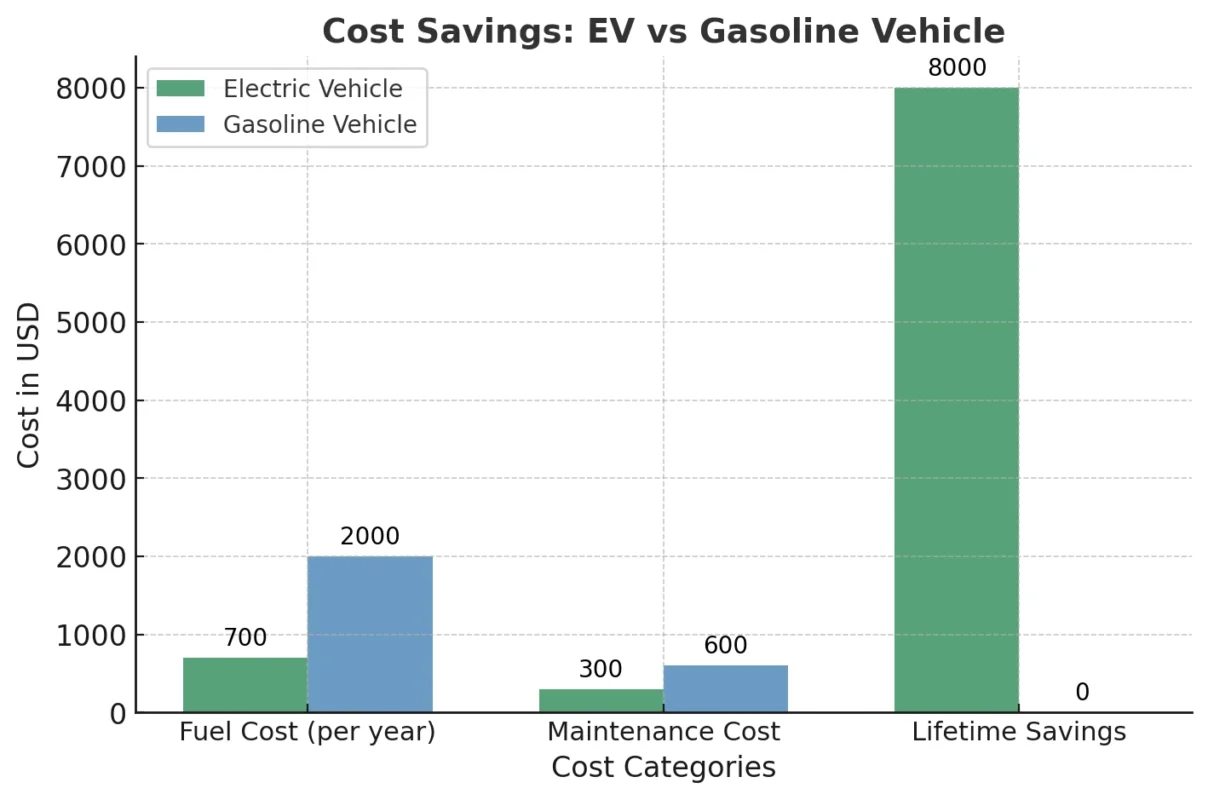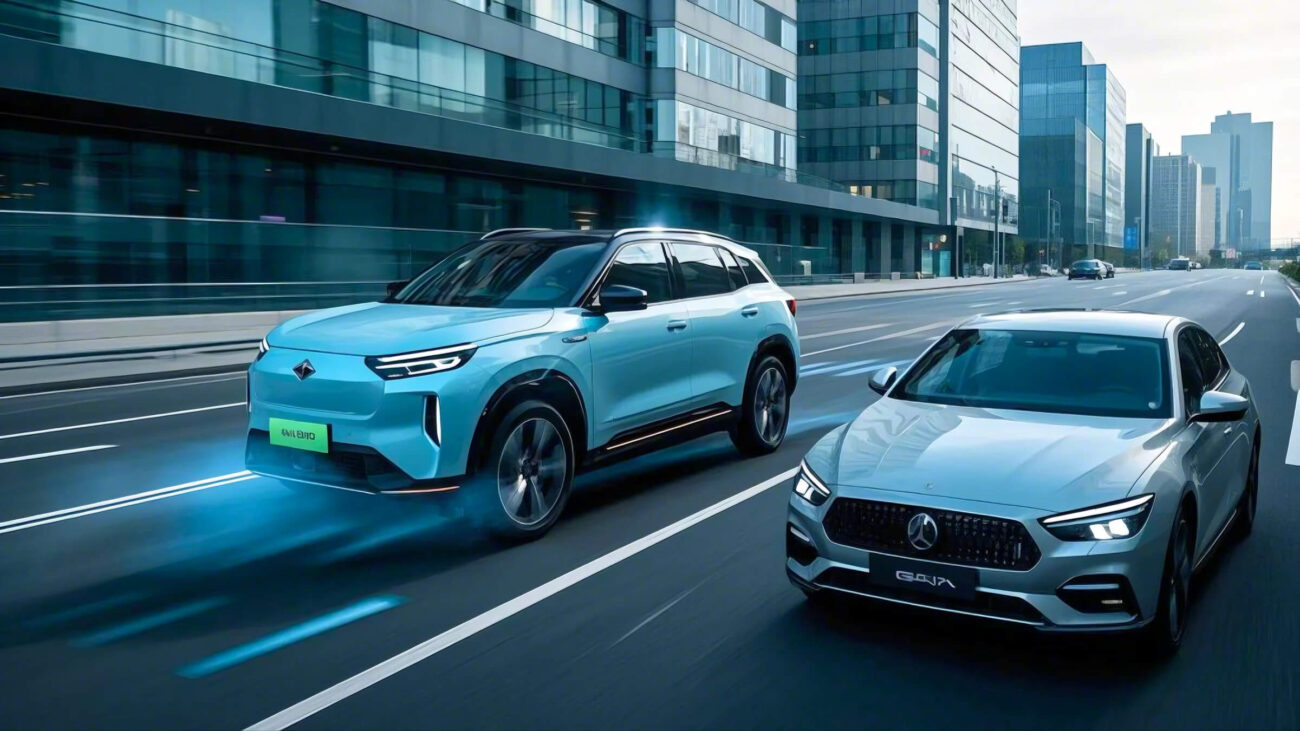Benefits of Electric Vehicles: Why You Should Switch Today
Electric vehicles (EVs) are transforming transportation, offering numerous advantages over traditional gasoline-powered cars. From cost savings to environmental sustainability, EVs represent the future of mobility. Here’s why making the switch is a smart move.
1. Environmental Benefits of Electric Vehicles
Lower Carbon Emissions
EVs produce zero tailpipe emissions, reducing greenhouse gases and improving air quality. According to the International Energy Agency (IEA), EVs emit 50% less CO₂ over their lifetime compared to gasoline cars. A study by the U.S. Environmental Protection Agency (EPA) found that replacing gasoline vehicles with EVs could cut greenhouse gas emissions by up to 60%, depending on the energy mix used for charging.
Since transportation accounts for nearly 25% of global CO₂ emissions, switching to EVs plays a crucial role in addressing climate change.
Reduced Air Pollution
EVs do not emit nitrogen oxides (NOx) or particulate matter (PM), which contribute to respiratory diseases and urban smog. Research from the World Health Organization (WHO) indicates that lowering vehicle emissions could reduce respiratory-related illnesses by 20-30% in urban areas.
Energy Efficiency
EVs convert over 77% of grid energy into motion, compared to just 12–30% for gasoline vehicles. A report by the U.S. Department of Energy (DOE) confirms that EVs are nearly three times more efficient than traditional cars.
2. Economic Benefits of EVs
Lower Fuel Costs
Charging an EV can often be more cost-effective than fueling a gasoline car, but savings vary depending on location, electricity rates, and driving habits. For example, a study by Ava Community Energy found that in Alameda County, EVs cost about 50% less per mile compared to gasoline cars. However, research by Anderson Economic Group suggests that in some parts of the U.S., EV charging costs may exceed gasoline refueling expenses. While many EV owners report significant savings, the commonly cited figure of $1,000 per year in fuel savings may apply only to specific scenarios. It is recommended that consumers evaluate energy costs in their region to determine their potential savings.

Reduced Maintenance Expenses
EVs have fewer moving parts, reducing the need for oil changes, transmission repairs, and exhaust system maintenance. As a result, EV owners experience 40-50% lower maintenance costs. Consumer Reports found that EV owners save $4,600 over a 200,000-mile vehicle lifespan compared to gasoline vehicle owners.
Government Incentives & Tax Benefits
Many governments offer tax credits, rebates, and incentives to promote EV adoption. In the U.S., for instance, the federal EV tax credit can be as high as $7,500, depending on the vehicle model.
3. Performance & Convenience Benefits
Instant Torque & Smooth Drive
Electric motors provide instant torque, delivering quick acceleration and a smooth, quiet driving experience. Tesla reports that the Model 3 can accelerate from 0-60 mph in just 3.1 seconds, outperforming many traditional sports cars.

Home Charging Convenience
Charging an EV at home is as simple as plugging it in overnight. With solutions like the Tayniu Infinity Series EV Chargers, you can start each day with a fully charged vehicle.
Regenerative Braking
EVs use regenerative braking technology to convert kinetic energy into electricity, increasing efficiency and extending battery life. The U.S. Department of Energy reports that regenerative braking can improve energy efficiency by up to 20%.
4. Cost Comparison: EV vs Gasoline Car
| Category | Electric Vehicle | Gasoline Vehicle |
|---|---|---|
| Fuel Cost (per year) | $500-$800 | $1,500-$2,500 |
| Maintenance Cost | 40-50% lower | Higher due to engine complexity |
| Government Incentives | Available (up to $7,500) | None |
| Lifetime Savings | $6,000-$10,000+ | Higher overall costs |
Frequently Asked Questions (FAQ)
Q1: How much can I save by driving an electric vehicle?
A: Switching to an EV can save up to $10,000 over its lifetime in fuel and maintenance costs. Consumer Reports indicates that EV owners save between $6,000-$10,000 in total ownership costs compared to gasoline vehicle owners.
Q2: Are electric vehicles really better for the environment?
A: Yes. EVs significantly reduce CO₂ emissions and air pollutants compared to gasoline cars. The Union of Concerned Scientists (UCS) found that even when powered by the existing electricity grid, EVs generate half the carbon footprint of gasoline cars over their lifetime.
Q3: What are the disadvantages of EVs?
A: While EVs have many advantages, challenges such as initial cost, charging infrastructure, and battery range still exist. However, technology is advancing rapidly. BloombergNEF reports that EV battery costs have fallen by 65% since 2010 and are expected to drop below $100 per kWh by 2030, making EVs even more affordable.
Ready to Switch?
The benefits of electric vehicles—environmental sustainability, cost savings, and superior performance—make them a compelling choice. If you’re considering an EV, what’s holding you back?
Join the EV movement today!
Explore Tayniu’s EV Charging Solutions and find the right charger for your needs.
References:
- IEA – Net Zero by 2050
- WHO – Air Pollution
- DOE – Fuel Economy
- EPA – Fuel Economy
- Consumer Reports – EV Maintenance
- DOE – Federal Tax Credits
Last Updated on February 26, 2025 by tayniu
